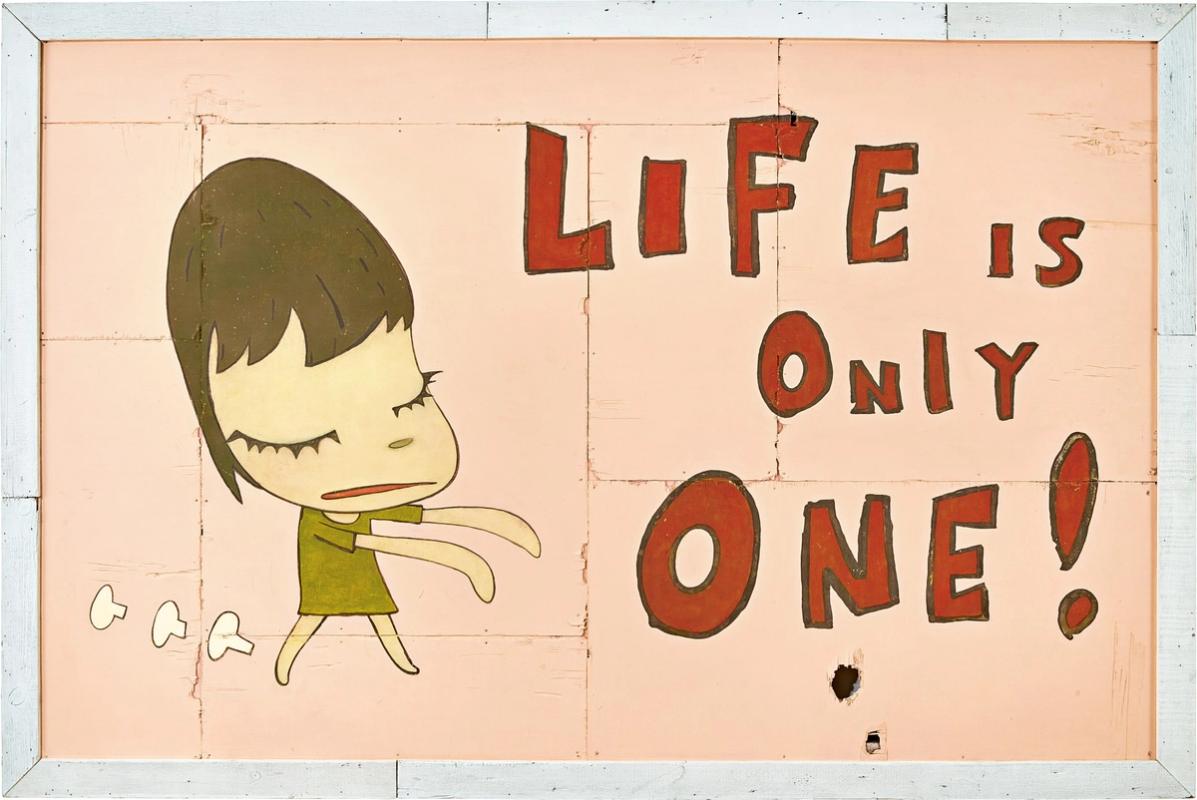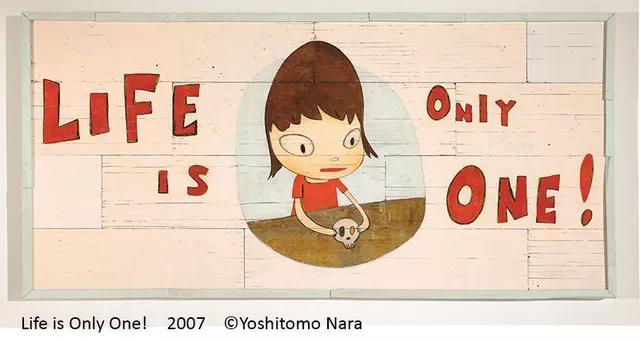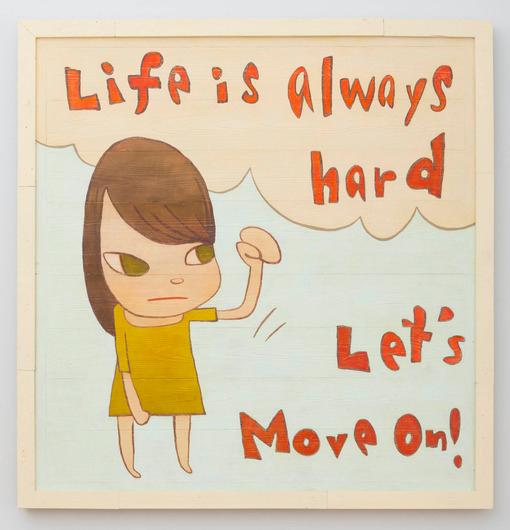Yoshitomo Nara's works on wood are a significant aspect of his oeuvre, showcasing his adeptness at merging traditional materials with contemporary themes. His exhibition "Pinacoteca" at Pace Gallery highlighted the depth and range of his practice, which encompasses paintings, sculptures, and works on cardboard, all presented in a unique, immersive installation (Pace Gallery). Nara's works are known for their textured surfaces and the emotional complexity of their characters, often depicted with large heads and expressive eyes. These figures, which range from indignant and rebellious to despondent and inquisitive, reflect Nara's inner world and his contemplations on pain, war, spirit, politics, loneliness, music, and nature.
An interview with Nara revealed his introspective approach to art and his connection to themes of childhood and rebellion. He spoke about his childhood as a time of authentic emotion and expression, which he seeks to recapture and explore through his art. Nara's works on wood and other materials embody this nostalgic yet sharply observant stance, inviting viewers to reflect on their own experiences of growth and self-awareness (Berlin Art Link).
The exhibition "Stars" further illustrates Nara's innovative use of materials, combining adolescent figures with star imagery and burlap, stretched over wood panels. This exhibition underscored the artist's ability to evoke childhood memories and aspirations through the symbolic use of stars, blending these with a textural richness that adds a sculptural dimension to his paintings (ArtGuides).
Nara’s exploration of materials such as wood and his unique visual language have made his works deeply resonant with audiences worldwide, situating him as a pivotal figure in contemporary art. His work not only captures the loneliness of modern society but also celebrates the rebellious spirit and introspective freedom of the imagination.


